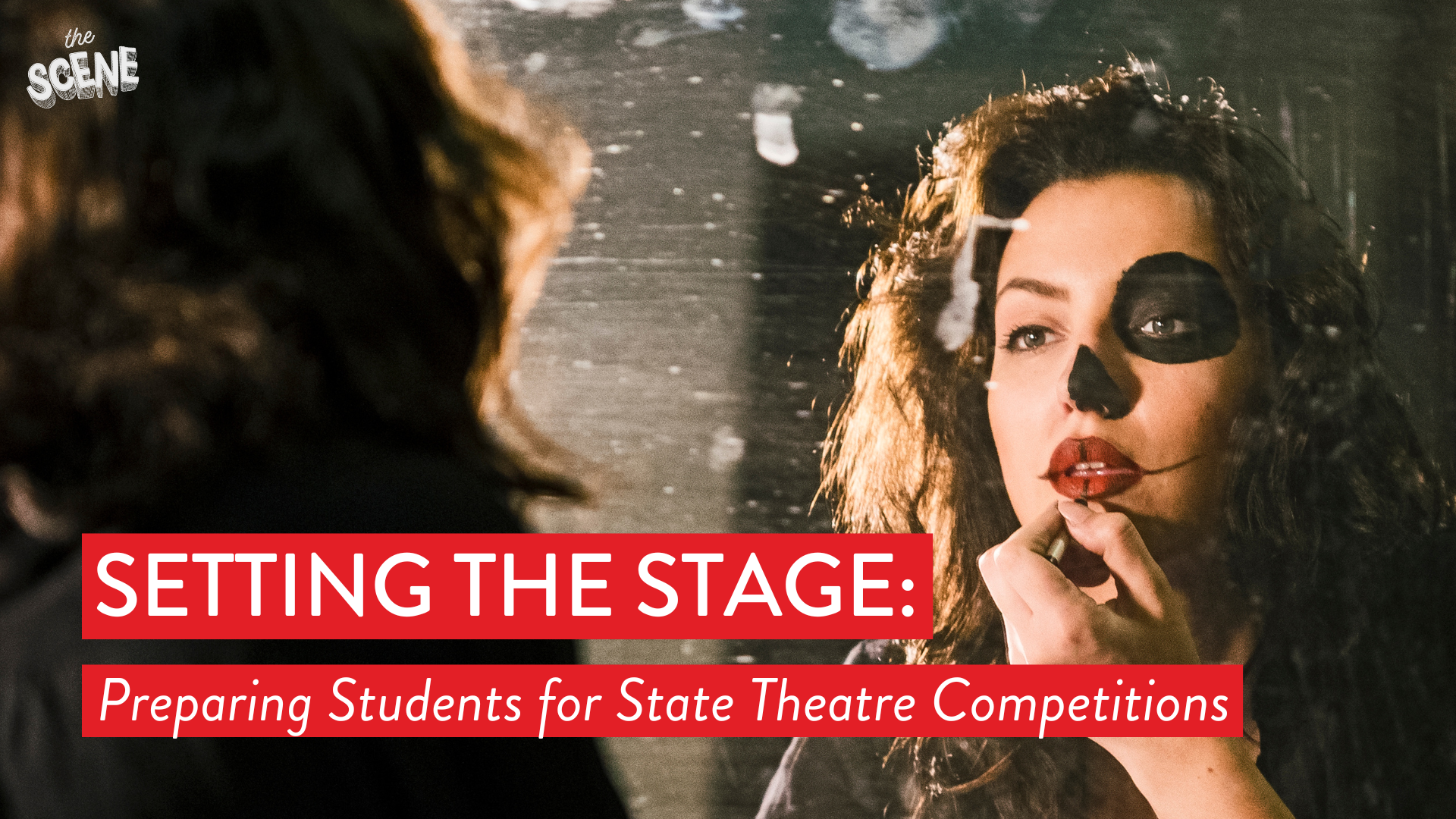By Zach Dulli, The Scene
A particular kind of electricity crackles in the air as high school theater students prepare for state one-act competitions. It’s a blend of nerves, ambition, and the communal thrill of putting weeks of hard work to the test. For theatre teachers, the days leading up to the big event can feel like walking a tightrope: balancing the fine art of pushing students to their best performances while ensuring they’re mentally equipped to handle the unique pressures of competition. As any seasoned theater educator will tell you, the key is as much about mental preparation as blocking and line delivery.
Here are some strategies for getting students in the right headspace to shine under the spotlight when it matters most.
Fostering a Collaborative Mindset
State competitions may be competitive by nature, but the essence of theater is collaboration. In the final days of preparation, emphasize the importance of teamwork over individual accolades. Remind students that their performance depends on the synergy of the group, not just the strength of individual stars. Activities like trust exercises or group warm-ups can reinforce this mindset. For example, spend a rehearsal practicing exercises like “passing the energy” or collective breathing. These seemingly small rituals remind students they’re part of something larger than themselves and can help quell performance anxiety.
Demystifying the Competition Environment
Uncertainty is one of the biggest sources of anxiety. Familiarize your students with what to expect at the competition. If possible, visit the venue beforehand or show photos and videos of the space. Walk students through the logistics: check-in procedures, dressing room locations, and backstage layouts. The more they know about the environment, the less intimidating it will feel. If a physical walkthrough isn’t possible, consider hosting a mock competition in your school auditorium. Bring in a panel of “judges”—colleagues, alumni, or even parents—to simulate the experience of being critiqued. This way, students can get a sense of the stakes without the added pressure of the actual event.
Encouraging Individual Rituals
Every performer has their own way of finding focus. Encourage students to develop personal pre-performance rituals that ground them. Whether it’s listening to a specific playlist, journaling, or doing yoga stretches, these rituals create a sense of control amid the chaos. Normalizing these practices can inspire students to explore what works for them.
Reframing Performance Anxiety
Nerves are natural, even for the most seasoned professionals. Instead of dismissing anxiety, frame it as excitement. Explain to students that the physical sensations of nervousness—a racing heart and sweaty palms—are identical to those of anticipation. By reframing the narrative, they can learn to harness their energy rather than be paralyzed by it. Consider leading a group discussion where students share their fears. Often, simply voicing anxieties can diminish their power. Follow this with guided relaxation techniques like visualization exercises to help students replace worry with focus.
Focusing on Process Over Outcome
Competitions are inherently results-driven, but reminding students that theater is about the process is crucial. Stress that the skills they’ve developed—collaboration, discipline, creativity—are what truly matter, regardless of the outcome. Introduce affirmations into rehearsals. Before each run-through, have students repeat statements like, “We are prepared,” “We support each other,” and “We will enjoy the moment.” These affirmations help center the team and shift the focus from fear of failure to pride in their preparation.
Maintaining a Supportive Presence
Your demeanor sets the tone as the teacher. Strive to be a calm, encouraging presence, even if the pre-competition chaos is overwhelming. Model the resilience and composure you hope to see in your students. On competition day, act as a grounding force. Keep snacks and water on hand, check in with students individually, and be ready with words of encouragement. A simple “You’ve got this” can go a long way.
Celebrating Every Moment
Finally, take time to celebrate the journey. Host a pre-competition dinner or a post-rehearsal reflection circle where students can express gratitude and share what they’ve learned. These moments of connection build camaraderie and remind students that their hard work is already an achievement worth celebrating.
State competitions are as much about growth as they are about accolades. By prioritizing mental preparation, theater teachers can ensure that their students walk into the event with confidence, focus, and a sense of joy.









